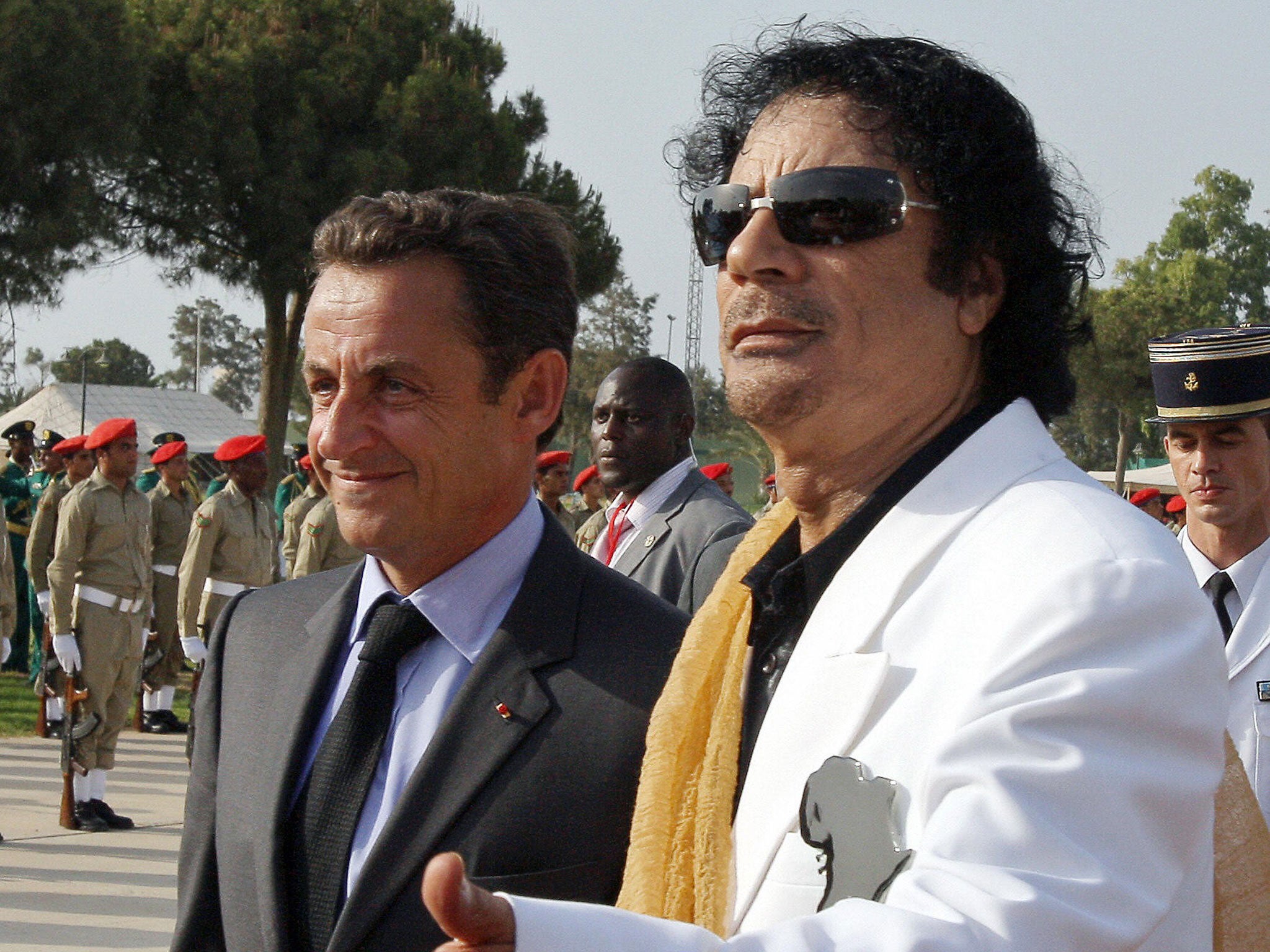If Sarko took Gaddafi cash, why oust him?
A fixer with reason to lie is also in a position to know

In Texas, the traditional definition of an honest politician is: "When a man is bought, he stays bought." By that definition, if Ziad Takieddine is to be believed, the former French president, Nicolas Sarkozy, is not an honest politician.
According to Mr Takieddine, Mr Sarkozy's courageous decision to spearhead, with David Cameron, the western support for the Libyan revolution in 2011 was a flagrant double-cross, one of the most extraordinary acts of political treachery in recent times. According to Mr Takieddine, the former French president took payments of more than ¤50m (£40m) from the late Libyan dictator Muammar Gaddafi in 2006-7 – before and after he entered the Elysée Palace. Mr Sarkozy calls the allegations ridiculous.
But who is Mr Takieddine? And why should we believe him? Or rather, why should the French justice system take seriously his conditional offer last week to lead investigators to written proof that Mr Sarkozy was on Gaddafi's payroll? Ziad Takieddine is a 62-year-old Lebanese-born fixer, who has been involved for two decades in arms and other deals between France and Saudi Arabia, Pakistan, Syria and Libya. He began, in the 1980s, as the manager of a ski resort in the French Alps where he came to know leading French politicians.
From 1993, he became vastly wealthy by easing the way for arms deals with the Muslim world. He also became the personal friend, and generous host, to a string of centre-right politicians closely associated with Mr Sarkozy. They include the president's childhood friend and former interior minister, Brice Hortefeux; his former chief of staff and interior minister, Claude Guéant, and the head of Mr Sarkozy's centre-right party, Jean-François Copé.
Mr Takieddine is also known to have been involved in the Sarkozy-Gaddafi negotiations in 2007 which led to the release of the Bulgarian nurses wrongly imprisoned in Libya and to a glittering (and much criticised) French state visit by Gaddafi. He should, therefore, know what he is talking about. He also has reasons to lie or at least to exaggerate.
He is under formal judicial investigation for his alleged part in organising and transmitting illegal inducements and kickbacks on multibillion-dollar arms sales to Saudi Arabia and Pakistan in 1993-95. It is alleged that some of these kickbacks funded the failed presidential campaign of the former prime minister Edouard Balladur in 1995 (chief campaign spokesman, N Sarkozy). It is also alleged that President Jacques Chirac's cancellation of "commissions" to senior Pakistani figures (in retaliation against the "treacherous" presidential campaign by his old friend Balladur) led eventually to a bomb attack in Karachi in 2002 in which 11 French submarine engineers were killed.
Just before Christmas, Mr Takieddine told the judge investigating this sordid cat's cradle that he can show him better and more recent wrongdoing: i.e. new scandals for old. By implicating Mr Sarkozy in illegal payments from Libya, he presumably hopes to "drown the fish" or make himself seem just a small part of a larger web of corruption.
But is it credible that Mr Sarkozy took such large amounts from such a flaky and evil figure as Gaddafi (as one son of the late "Guide" also claimed last year)? Having done so, would Mr Sarkozy have enthusiastically led the western military support for the Libyan revolution? It could be argued that Mr Sarkozy had good reason, once the revolution began, to cover his tracks by hastening Gaddafi's demise. It could equally be argued that he had reason to oppose a revolution which might uncover Gaddafi's secret dealings.
The Libyan allegations are just one layer – the most distasteful layer – in a series of accusations of financial chicanery against Mr Sarkozy. They may yet all prove to be false. Mr Takieddine, who is in a good position to know, says that he is "sickened" by the "generalised corruption" in French public life. Does that extend to two-timing – or "corruption" by the Texan definition?
Join our commenting forum
Join thought-provoking conversations, follow other Independent readers and see their replies
Comments
Bookmark popover
Removed from bookmarks